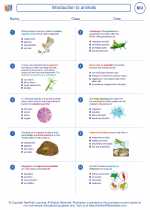Plasma
Plasma is the liquid portion of the blood, making up about 55% of its total volume. It is a yellowish fluid that consists of water, electrolytes, proteins, hormones, and waste products. Plasma plays a crucial role in transporting nutrients, gases, and waste products throughout the body, as well as maintaining the pH and osmotic balance of the blood.
Composition of Plasma
Plasma consists of approximately 92% water and 8% solutes, including:
- Electrolytes (such as sodium, potassium, calcium, and chloride)
- Plasma proteins (such as albumin, globulins, and fibrinogen)
- Hormones
- Waste products (such as urea and creatinine)
Functions of Plasma
Plasma serves several important functions in the body, including:
- Transportation: It carries nutrients, oxygen, carbon dioxide, and waste products to and from cells throughout the body.
- Regulation: It helps regulate the pH and osmotic balance of the blood, as well as the body's temperature.
- Immunity: It contains antibodies and other immune system components that help defend the body against infections.
- Clotting: It contains clotting factors that help control bleeding and promote blood clot formation.
Study Guide
To study the topic of plasma, it is important to understand its composition, functions, and the role it plays in maintaining homeostasis in the body. Here are some key points to focus on:
- Describe the composition of plasma, including its major components and their functions.
- Explain the role of plasma in transporting nutrients, gases, and waste products throughout the body.
- Discuss how plasma helps regulate the pH and osmotic balance of the blood.
- Explore the role of plasma in the immune response and blood clotting processes.
- Relate the importance of plasma in maintaining overall homeostasis in the body.
Understanding the intricate functions of plasma is essential for comprehending the broader concepts of blood and its role in maintaining the health and balance of the human body.
.◂Biology Worksheets and Study Guides High School. Introduction to animals

 Worksheet/Answer key
Worksheet/Answer key
 Worksheet/Answer key
Worksheet/Answer key
 Worksheet/Answer key
Worksheet/Answer key
 Vocabulary/Answer key
Vocabulary/Answer key
 Vocabulary/Answer key
Vocabulary/Answer key
 Vocabulary/Answer key
Vocabulary/Answer key
